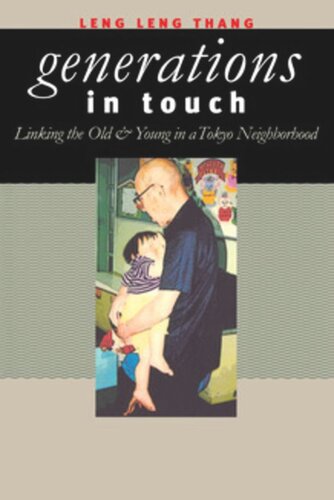

Most ebook files are in PDF format, so you can easily read them using various software such as Foxit Reader or directly on the Google Chrome browser.
Some ebook files are released by publishers in other formats such as .awz, .mobi, .epub, .fb2, etc. You may need to install specific software to read these formats on mobile/PC, such as Calibre.
Please read the tutorial at this link: https://ebookbell.com/faq
We offer FREE conversion to the popular formats you request; however, this may take some time. Therefore, right after payment, please email us, and we will try to provide the service as quickly as possible.
For some exceptional file formats or broken links (if any), please refrain from opening any disputes. Instead, email us first, and we will try to assist within a maximum of 6 hours.
EbookBell Team

4.8
74 reviewsA dilemma long faced by western societies—how to bring the generations together—is also of growing concern in the east. In Japan, where, until recently, the extended family often lived under the same roof, social programs designed to facilitate interaction between old and young have proliferated. Leng Leng Thang offers an in-depth view of one of those programs, an unusual social welfare institution called Kotoen. Kotoen is a pioneering facility for multigenerational living, providing both daycare for preschoolers and a home for elderly residents. With its twin mottoes of fureai (being in touch) and daikazoku (large extended family), it has been the subject of widespread media attention and has served as a model for other institutions. Yet Kotoen has never before been studied seriously.Under its director's inspiring leadership, Kotoen looks unusually promising, but Thang is wary of simplistic conclusions. Her interviews, research, and work as a volunteer at Kotoen reveal the complaints common among some elderly residents toward their surroundings in old age institutions as well as the painful persistence of the traditional family ideal. Yet far from calling the experiment a failure, Thang challenges accepted wisdom and so-called common sense to reveal the advantages and limitations of the relationships fostered between Kotoen's "grandchildren" and "grandparents." The lessons learned from Kotoen illuminate the urgency of re-engaging the generations in an aging society and provide direction for improving the quality of life for all.